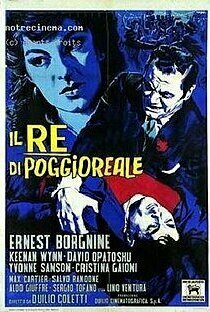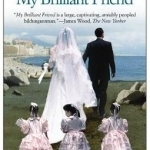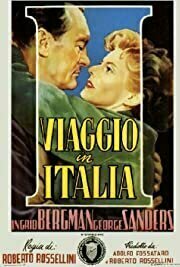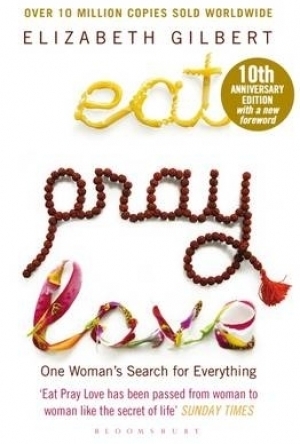Search
Search results
Andy K (10823 KP) created a video about The Bourne Supremacy (2004) in Movies
Mar 17, 2018 (Updated Mar 19, 2018)
Rachel Kushner recommended The Skin in Books (curated)
Merissa (13792 KP) created a post
May 3, 2022
Ernest Borgnine recommended Black City (Il re di Poggioreale) (1961) in Movies (curated)
Entertainment Editor (1988 KP) created a video about My Brilliant Friend in TV
Jan 16, 2019
William Finnegan recommended My Brilliant Friend in Books (curated)
Lindsay (1796 KP) rated Turning to Stone (Roma Series Book 4) in Books
Feb 15, 2018
Bianca Nerini is with her trusted friends. We meet up with the group and find out that they are all working together. This is a bit different in terms that there's not much action for them all. Bianca Nerini gets in contact with Loki, and it may be that there are two Lokis?
We meet an Intern that join their team. He seems to know Charlie Brooks and then Matteo is known by this TB. Who is TB? How has Farese involved once again? He seems to show up once again. Gabriel Valjan does it again. Who is really the enemy, and who are those you can trust? In this installment it about the mafia. Who might be the spiders?
Can the Gdf team figure out what Farese and the mafia are doing? What is it that Farese wants in Naples? Who is this Madrina? We do know that Farrugia is undercover and his friend is as well this Claudio. What do these clans Marra, and Totaro want to do with the Euro and does the Silicons do with the US Bonds. Will the Gdf group be able to make the connections? Why has the Commissioner assassinated? We also have agents McGrittery and Murphy that helps the teams as well.
We meet an Intern that join their team. He seems to know Charlie Brooks and then Matteo is known by this TB. Who is TB? How has Farese involved once again? He seems to show up once again. Gabriel Valjan does it again. Who is really the enemy, and who are those you can trust? In this installment it about the mafia. Who might be the spiders?
Can the Gdf team figure out what Farese and the mafia are doing? What is it that Farese wants in Naples? Who is this Madrina? We do know that Farrugia is undercover and his friend is as well this Claudio. What do these clans Marra, and Totaro want to do with the Euro and does the Silicons do with the US Bonds. Will the Gdf group be able to make the connections? Why has the Commissioner assassinated? We also have agents McGrittery and Murphy that helps the teams as well.
Lindsay (1796 KP) rated Storm Taken in Books
Jan 4, 2019
Storm Taken is one action packed but also as some different elements to it. It was enjoyable and really a good way to look at a storm and the way we prescriptive them. Ever wonder what it like to look at thunderstorm and wonder it something of it own.
There a storm that taking be surprised by all. Things start to go missing? Is there someone taking things with out anyone knowing. To the locals on Naples they do not know that the storm is feeding on something until they are trapped on the island and can not get off or anyone can get on the island.
Can a storm feed of fear and make people to turn on one another or will they unite? I wonder about this if a storm really can feed off our fear? Is it some weather weaponize from the government? Is is a freak storm? To know for sure it hard to say. But the story behind it is good. There seems to be few plots and is there a mad man running around?
The author does a really good job with it. There seems to be a bit mystery. We learn that we may need to learn survive and get along with neighbors. Will the families work together or will they start turning on each other?
There a storm that taking be surprised by all. Things start to go missing? Is there someone taking things with out anyone knowing. To the locals on Naples they do not know that the storm is feeding on something until they are trapped on the island and can not get off or anyone can get on the island.
Can a storm feed of fear and make people to turn on one another or will they unite? I wonder about this if a storm really can feed off our fear? Is it some weather weaponize from the government? Is is a freak storm? To know for sure it hard to say. But the story behind it is good. There seems to be few plots and is there a mad man running around?
The author does a really good job with it. There seems to be a bit mystery. We learn that we may need to learn survive and get along with neighbors. Will the families work together or will they start turning on each other?
Richard Hell recommended Journey to Italy (1954) in Movies (curated)
Rachel King (13 KP) rated Eat Pray Love: One Woman's Search for Everything in Books
Feb 11, 2019
I started this book with the warning that the author comes off as very selfish. Considering that this is a memoir, I don't really see what the big deal is. The best way for me to review this book is in three parts, since the book is divided that way. The epiphany that Gilbert has about herself at the beginning of the book I felt I could relate to in some ways - I know what it feels like to spend years gearing yourself up to do something at a certain age, only to arrive and realize that you don't want to do it - and be shocked by this realization. The specifics of her realization were quite different from mine, as I have always wanted children and I could not imagine never having any, but what bugged me was that her husband could not grasp this epiphany of hers. Luckily, the book was more about her than about her mysterious ex-husband.
As for her trip to Italy, I loved every page of it. I felt like I was living it through her words and experiences, wishing I was there with her to taste the food and learn the language. Italy has always been a dream of mine, though I intend to visit the sites, too, not just experience the food and language. I found the scene in which she is fasinated by the Italian man cursing at the soccer game to be a great example of her love for Italy and something I would probably do myself. I was only disappointed that this section was not longer and she did not go into greater detail about everything that she ate. I will certainly have to remember to try the pizza in Naples.
I found her trip to India the most difficult to get through, especially when I reached the point in which she decides to not do any traveling around India - a major disappointment for me. Richard from Texas was the highlight of this section for me, since he seemed to be the most down-to-earth of all the interesting people she meets here, and offers her the soundest advice. The focus of this section was on spirituality, but as it is heavily influenced by Eastern religions, I found myself disagreeing with many of her personal beliefs, even though I admired her dedication and determination. Her views of "kundalini shakti" are a perfect example - Christianity teaches that this is a demonic / occult practice, but Gilbert believes that it is the same thing as the Holy Spirit. This section alone is proof enough for me as to why I stay away from philosophical books.
Her final trip to Bali, Indonesia was educational in many ways, as I knew nothing about the culture and history there. Her medicine man, Ketut Liyer, was quite an interesting character, and I really felt for the young man she befriended, Yudhi, who was forced unfairly to leave the United States thanks to the Homeland Security Act. I find it interesting that she failed in completing her year of celibacy, but I'm sure those Brazilian men can be quite tempting when they want to be. Those who say that Gilbert appears very selfish in this book seem to ignore that she helped a divorced woman - an unheard-of thing in Bali - with three children, obtained a piece of land for her own home and business before Gilbert had to leave the country.
Overall, this year in the life of Elizabeth Gilbert was certainly a memorable one, and one that many, many other women would happily take her place in. I don't find her any more selfish than anyone else who is trying to find a way out of grief and depression, as well as break destructive cycles in his or her life. She was just blessed enough to be payed for the effort to document the experience.
As for her trip to Italy, I loved every page of it. I felt like I was living it through her words and experiences, wishing I was there with her to taste the food and learn the language. Italy has always been a dream of mine, though I intend to visit the sites, too, not just experience the food and language. I found the scene in which she is fasinated by the Italian man cursing at the soccer game to be a great example of her love for Italy and something I would probably do myself. I was only disappointed that this section was not longer and she did not go into greater detail about everything that she ate. I will certainly have to remember to try the pizza in Naples.
I found her trip to India the most difficult to get through, especially when I reached the point in which she decides to not do any traveling around India - a major disappointment for me. Richard from Texas was the highlight of this section for me, since he seemed to be the most down-to-earth of all the interesting people she meets here, and offers her the soundest advice. The focus of this section was on spirituality, but as it is heavily influenced by Eastern religions, I found myself disagreeing with many of her personal beliefs, even though I admired her dedication and determination. Her views of "kundalini shakti" are a perfect example - Christianity teaches that this is a demonic / occult practice, but Gilbert believes that it is the same thing as the Holy Spirit. This section alone is proof enough for me as to why I stay away from philosophical books.
Her final trip to Bali, Indonesia was educational in many ways, as I knew nothing about the culture and history there. Her medicine man, Ketut Liyer, was quite an interesting character, and I really felt for the young man she befriended, Yudhi, who was forced unfairly to leave the United States thanks to the Homeland Security Act. I find it interesting that she failed in completing her year of celibacy, but I'm sure those Brazilian men can be quite tempting when they want to be. Those who say that Gilbert appears very selfish in this book seem to ignore that she helped a divorced woman - an unheard-of thing in Bali - with three children, obtained a piece of land for her own home and business before Gilbert had to leave the country.
Overall, this year in the life of Elizabeth Gilbert was certainly a memorable one, and one that many, many other women would happily take her place in. I don't find her any more selfish than anyone else who is trying to find a way out of grief and depression, as well as break destructive cycles in his or her life. She was just blessed enough to be payed for the effort to document the experience.






